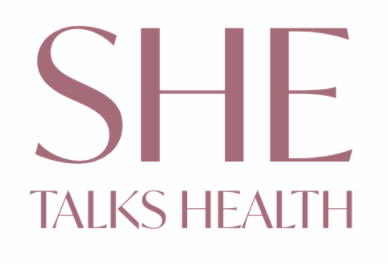
Different Types of PCOS
PCOS can be really complicated to manage and perhaps one of the biggest reasons why is there are a handful of underlying causes and subsequent “Types of PCOS”
PCOS is not one disease but more of a set of symptoms & even the definition of PCOS can differ depending on who you talk to. I personally like the definition from the Androgen Excess and PCOS Society , which says that a woman has PCOS if she has the following:
- Hyperandrogenism
- Irregular/missing cycle and/or ovarian dysfunction
- The exclusion of related disorders
For more about getting the right Diagnosis from your doctor – Check out Episode #14 Addressing PCOS with Dr. Felice Gersh on the SHE Talks Health Podcast
To successfully support PCOS, identifying which factor or factors are driving your symptoms can be extremely helpful for long term relief. It’s important to know that there is still no official breakdown of the different “types” of PCOS in the 2018 international guidelines, which leaves room for interpretation of how PCOS is categorized. However, my hope is that understanding the driving factors here helps you get better support from your care team.
Let’s look at some of these subtypes:
Insulin Resistant PCOS
The most common type of PCOS, accounting for up to 70% of people with PCOS. This type is driven by insulin resistance which can be measured in the blood work with the Insulin marker. This type typically comes with other identifying factors like weight loss resistance, elevated lipids & A1C. Many women with this type of pcos also deal with pre-diabetes or metabolic syndrome. Common interventions for this type include:
- Focusing on lower glycemic carbohydrates and balancing blood sugar with adequate protein & fat
- Prioritizing movement & exercise which has been shown to support insulin sensitivity
- Prioritizing sleep – as poor sleep is directly correlated to insulin resistance.
- Supplements like magnesium & inositol that work to stabilize insulin
Post Pill PCOS
This is a temporary reaction to withdrawal from hormonal birth control which may cause a spike in androgens. This one should just resolve with time. Some women opt to try androgen reducers like zinc or supplements that support regular ovulation like Vitex to address this more quickly.
Inflammatory PCOS
Chronic inflammation can stimulate the ovaries to make too much testosterone. Typically this type is seen in conjunction with other types. To address this we have to find out what is causing inflammation which could be anything from gut infections (yeast, bacteria, parasites), to food sensitivities (dairy, gluten, eggs etc), to eating an inflammatory diet, to environmental toxins (mold, personal care products). Some people may find adding anti-inflammatories like Curcumin from Turmeric or Omega 3’s from fish, avocado & nuts or simply an Omega 3 supplement helpful.
Adrenal PCOS
Disclaimer: This information is being provided to you for educational and informational purposes only. It is being provided to educate you about options to take care of your body and as a self-help tool for your own use so that you can reach your own health goals. It is not intended to treat or cure any specific illness and is not to replace the guidance provided by your own medical practitioner.
If you are under the care of a health care professional or currently use prescription medications, you should discuss any dietary changes or potential dietary supplements use with your doctor, and should not discontinue any prescription medications without first consulting your doctor.
This information is to be used at your own risk based on your own judgment. If you suspect you have a medical problem, we urge you to take appropriate action by seeking medical attention.
